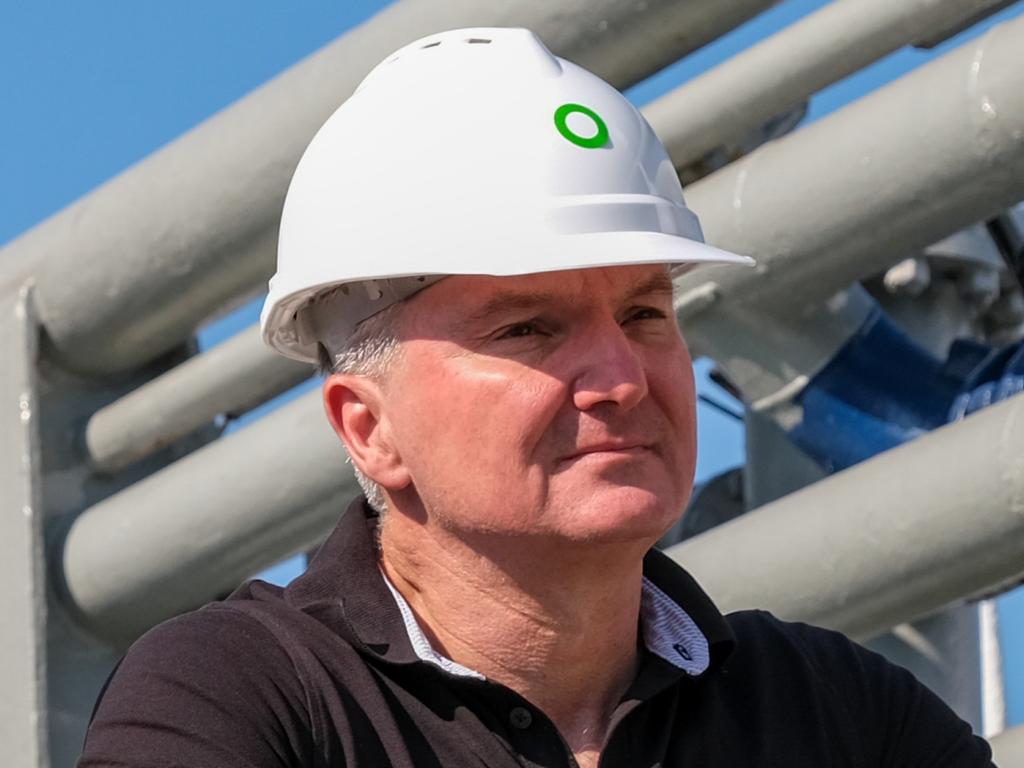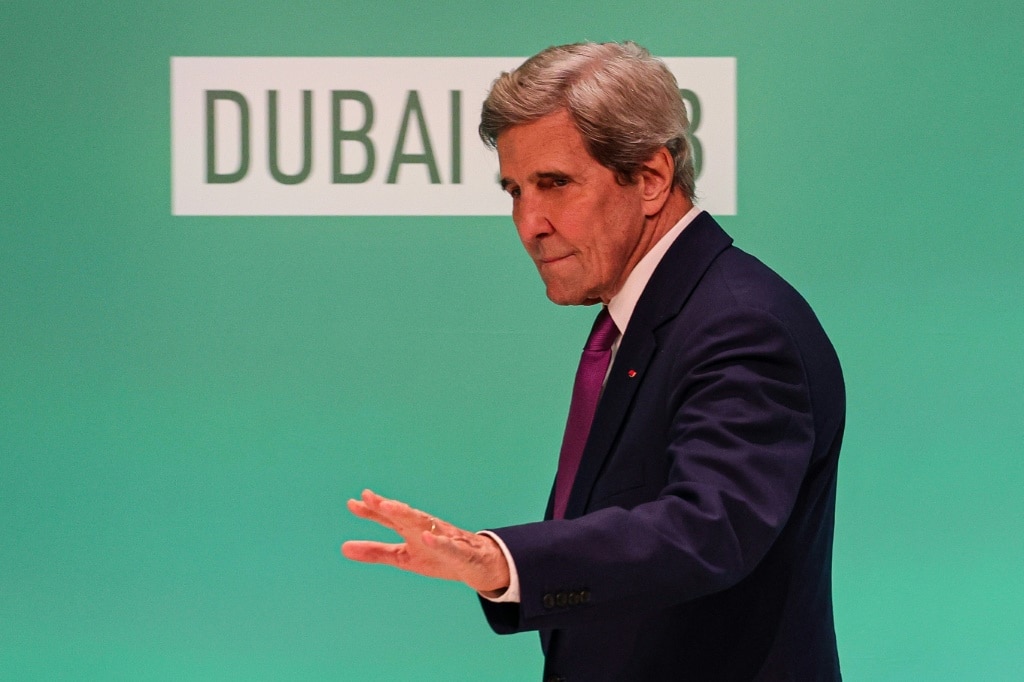COP28 fantasy shows emission targets can’t be reduced to zero sum game


Holding it in one of the main oil-producing regions meant a couple of disagreeable collisions with reality. For the big energy producers just laughed out loud at the idea that they were going to eliminate fossil fuels.
The only people who believe that are climate activists. I don’t even think governments that say it believe it.
According to the Energy Institute Statistical Review for 2023, fossil fuels provide about 82 per cent of the world’s energy, which is about where it has been for a decade or more.
But right back to the Gillard government years, we in Australia were constantly berated for what laggards we were and how the rest of the world was switching en masse to renewable energy.
In fact, far from the Coalition years costing the nation by delaying necessary change, they gave us another decade to accumulate wealth. Being a late adopter of technology is smart when the technology in fact has not yet been invented. It’s still true that when the Coalition ran on energy policy it won elections.
The rest of the world was not decarbonising. China is responsible for 30 per cent of the world’s greenhouse gas emissions. Sometime next decade its historic emissions will be so great it will be responsible for the lion’s share of historic emissions as well, so the essentially nonsense argument that the West caused the problem and therefore should pay disproportionately for its solution will not apply in any way.
But China has also dominated the market in manufacturing the hard objects of renewable energy – wind turbines, solar panels, electric vehicles. One reason China has such a price advantage in producing such products is that it uses cheap electricity generated by coal. That’s true, by the way, of all the consumer goods we buy from China too. The West deindustrialises to reduce emissions and all the same products are made by coal-fired electricity in China. China uses more coal than all other nations combined. China and India use two-thirds of all the coal used in the world.

Once on the ABC Insiders’ program I earned a passionate interjection by the normally well-mannered Annabel Crabb for saying a hi-tech coal-fired power plant would be a good idea in Australia (a position Malcolm Turnbull once advocated). No, she protested, coal was on the way out. The ABC audience was outraged at my pro-coal remark, as if I’d brought eye of newt and toe of frog, wool of bat and tongue of dog to a Salem witch trial.
What of reality? In 2022, increased demand for thermal coal in China, India and Indonesia more than offset the decline in demand in the US, the EU and Japan. So consumption of coal in 2022 hit an all-time high. So, too, did greenhouse gas emissions.
The US Energy Information Administration reports that on all its realistic scenarios, it expects greenhouse gas emissions to rise until 2050 at least.

I’m not arguing that this is a good thing. But every so often it’s worth trying to think of policy in the framework of reality. If you accept more or less the anthropomorphic warming idea, then you want to reduce greenhouse gas emissions.
But if it’s absolutely clear that the rest of the world is going to massively increase emissions, and that anything Australia does one way or the other will have no discernible effect on global warming, then it’s only reasonable that you temper the urgency of your efforts a bit. Still reduce emissions by all means, but not at any cost.
If that’s what Australia really wanted to do, it would focus on gas in the short term and nuclear in the long term, with a chunk of renewables thrown in as well. Gas replacing coal does reduce emissions. And nuclear in the long run gives you reliable base-load power forever at more or less zero emissions, after accounting for the emissions involved in constructing the power stations.
All of our current policy is based on fantasy. For example, you can’t have net zero plus immigration, and I want immigration.

The world is not moving to net zero. Where big reductions have occurred it’s in rich nations which, until now, have been willing to pay the massive subsidies renewable energies still need, and, more important, to pay for the back-up capacity you have to have for when renewables don’t work. And yet there’s more. They also have to pay for vast work connecting renewables to electricity grids.
According to one calculation, achieving net zero through renewable energy would require 80 million kilometres of new power lines, or wrapping the Earth 2000 times.
The Economist, a great supporter of net zero and green actions, dolefully reports in its latest issue on the commercial disarray in green energy and finance. The projects are so expensive that they are falling over, in both the US and Europe.
The S&P global green energy index, it reports, has fallen by 32 per cent across the past year while global stockmarkets have risen by 11 per cent.
The Economist doesn’t say it but what those figures represent is that even in rich countries the gobsmacking cost of moving to renewables is such that they are running out of the money to spend on that type of energy.
The Wall Street Journal recently listed a swag of indicators that point to what it calls “the collapse of the net-zero agenda around the world”. Among these: the EU’s green deal has essentially collapsed, with key elements impossible to be implemented; Britain has abandoned an electric vehicle mandate and has also embarked on new licences to drill for oil and gas in the North Sea; Geert Wilders, who repudiates climate action, won a slashing victory in the Dutch elections following regional election victory for a farmers’ party opposed to emissions restrictions in agriculture.
There are countless other straws in the wind. Argentina has just elected a president who rejects costly climate action. If Donald Trump becomes president he will do the same for the US, although even under Joe Biden the US is now the biggest producer and exporter of natural gas and in September produced 13.2 million barrels of crude oil a day, a record amount.
By all means reduce Australia’s emissions, but don’t send us bankrupt going at breakneck speed. And just occasionally acknowledge the reality in the big bad world.







The COP28 summit in Dubai has provided marvellous entertainment. It has illustrated the complete fantasy of so much Australian climate policy and debate for the past 20 years.